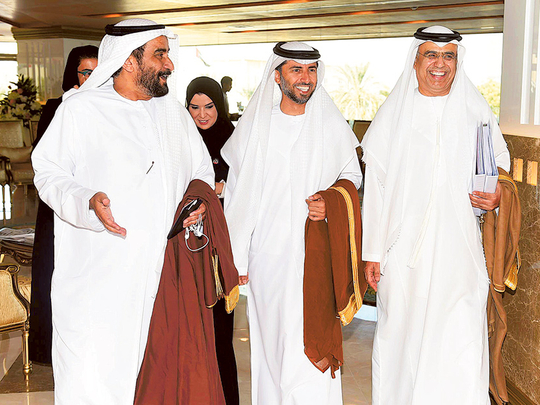
Abu Dhabi: Members of the Federal National Council Tuesday passed the UAE’s federal budget of Dh48.7 billion for 2017, focusing on social development, education and health.
“The budget presented to the Federal National Council aims at delivering Vision 2021 goals and ambitions of the citizens,” Obaid Humaid Al Tayer, Minister of State for Financial Affairs, told the House.
In October, the Cabinet approved a Dh248 billion federal budget for the next five years, with a prime focus on education, social development and health.
Abdul Aziz Al Zaabi, a member from Ras Al Khaimah and second deputy speaker of the House, demanded that allocations for education, health care and Emiratisation be increased.
The largest share of the 2017 budget, around Dh25.2 billion, is dedicated to sectors affecting the lives of UAE citizens. About 20.5 per cent of the 2017 budget, or Dh10.2 billion, has been earmarked to the education sector, 8.6 per cent or Dh4.2 billion to the healthcare sector, 8.2 per cent or Dh4 billion to public sector wages, 6.6 per cent or Dh3.2 billion to social development and 3.3 per cent or Dh1.6 billion to housing.
The Cabinet set aside Dh3.3 billion for federal projects in the 2017 budget. These include: Dh891 million for federal government projects, Dh771 million for developing the power and water sector through projects undertaken by the Federal Electricity and Water Authority and Dh1.4 billion for the Shaikh Zayed Housing Programme.
Members of the House questioned the sufficiency of allocation for innovation. The minister said funds allocated for innovation were enough, stressing the UAE studied experience of advanced countries including Switzerland.
Dh2 billion has been earmarked to support government innovation through the establishment of the Mohammad Bin Rashid Innovation fund to help inventors, in line with the targets of Vision 2021.
The government is maintaining spending over the next five years despite a drop in oil prices, which has eaten away into its biggest source of revenue.
UAE made a deficit of 2.1 per cent of GDP last year as oil prices nosedived by more than half their value in 2014.
The country is forecast to post a 3.9 per cent deficit this year, and a 1.9 per cent deficit next year, according to IMF estimates. The IMF is projecting that the UAE’s cumulative fiscal deficit will reach $18.4 billion between this year and 2021 as low oil prices reduce government income. The fund’s growth forecast for the UAE is 2.3 per cent for this year, down from the 4 per cent growth of last year.
Because of the oil price plunge, the UAE has embarked on a number of cost-reducing initiatives, including a reduction in energy subsidies and other public spending cuts.











